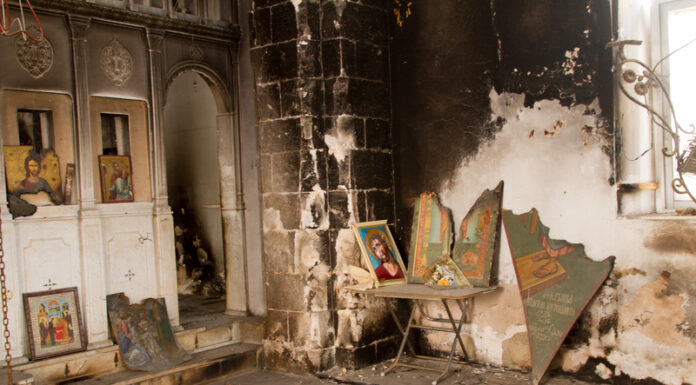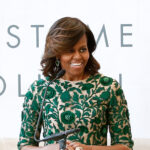A suicide bomber killed 25 people and wounded 63 others during a Sunday evening service at the Mar Elias Church in Damascus, Syria, marking the first attack on a Christian church since the fall of the Assad regime in December 2024.
The attack occurred on June 22, 2025, in the Dweila neighborhood when a gunman entered the Greek Orthodox church during evening mass, opened fire on worshippers, and then detonated an explosive vest at the entrance. According to witnesses, approximately 350 people were attending the service when the attack began.
Father Fadi Ghattas, who witnessed the attack, reported seeing at least 20 people killed. Ghattas described the scene: “People were praying safely under the eyes of God.”
The Syrian Interior Ministry initially attributed the attack to the Islamic State group, though the organization has not officially claimed responsibility. However, a splinter group called Saraya Ansar al-Sunna later claimed responsibility for the bombing through social media posts.
The Islamic State splinter group released a statement on Tuesday claiming the attack was triggered by unspecified provocations by Christians in Damascus. The group referenced a March incident at the church when residents complained about Islamic chants being broadcast from a car in front of the building.
Syrian authorities announced Monday that they had dismantled the terrorist cell responsible for the attack, conducting raids that resulted in six arrests and two suspects being killed. Officials seized explosives, suicide vests, mines and ammunition during the operations. The government also claimed to have thwarted two other planned attacks by the same cell, including one targeting a Shia Muslim shrine in Damascus.
Saraya Ansar al-Sunna disputed the government’s claims about arrests, calling them fabricated and warning that more attacks would follow. The group, which formed after the fall of President Bashar al-Assad, has been linked to various sectarian threats and attacks targeting Alawites, Christians, Druze and Shiite Muslims.
The attack has raised concerns about the security capabilities of Syria’s new government under interim President Ahmed al-Sharaa, whose Sunni Islamist group Hayat Tahrir al-Sham previously served as an al-Qaeda affiliate. Al-Sharaa has repeatedly promised to protect religious and ethnic minorities since taking power.
Syria’s Social and Labor Affairs Minister Hind Kabawat visited victims at a Damascus hospital, emphasizing the need for unity among all Syrians. The attack comes after previous sectarian violence, including massacres in the Alawite-dominated coastal region in March and clashes between government forces and Druze militias in May.
The Greek Orthodox Patriarchate of Antioch condemned the attack and called upon Syria’s interim authorities to assume full responsibility for protecting all citizens and ensuring the sanctity of religious sites.
International leaders and organizations condemned the bombing. Pope Leo XIV expressed deep sorrow and offered prayers for the victims and their families. The United Nations Special Envoy for Syria, Geir Pedersen, called the attack a heinous crime and urged all Syrians to unite in rejecting terrorism and extremism.
The US Special Envoy for Syria, Thomas Barrack, described the attack as an act of cowardice that has no place in Syria’s efforts toward tolerance and inclusion. Multiple countries, including Turkey, Jordan, Iraq, Israel, Greece and several European nations, issued statements condemning the violence.
Security analysts note that the Islamic State group has been attempting to reestablish itself in Syria following the political transition. The organization once controlled vast territories across Syria and Iraq before being militarily defeated in 2019, though remnants continue to operate in desert regions and urban areas.
Jerome Drevon of the International Crisis Group indicated that the group now operates as a network of independent cells rather than a hierarchical organization, making it more difficult to eliminate completely. He noted that while violence levels remain lower than initially expected six months ago, security challenges persist across the country.
The attack highlights ongoing security concerns for Syria’s religious minorities, particularly Christians who once comprised 10 percent of the population but have seen their numbers decline significantly due to war and persecution. Most remaining Christians live in mixed communities in Damascus and Aleppo.








